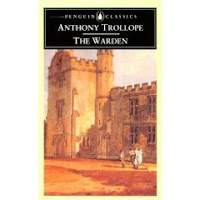
Julian Barnes uses an elegant and readable writing style to create the dual fictional lives of Sir Arthur Conan Doyle and George Edalji in this his tenth novel. The result is a compelling narrative that at once is both interesting as fictional biography and as a detective story. Personally, I found the mystery and Doyle's investigation into its' source was more interesting, but the rest of the novel was well enough told to almost keep up with the suspense created by the mystery. The combination was one of the best novels I have read all year and would certainly make any ten-best list I might create, if I were so inclined. The author uses an interesting narrative technique switching back and forth between the two protagonists as they grow up completely unaware of each other until the moment when their lives become inextricably intertwined, in no small part due to the fame of Doyle's most famous creation, Sherlock Holmes. What happens subsequently as their lives continue to their unique personal conclusions is summed up in the final sections of the novel. Certainly this is a more than satisfying read for several winter nights.
Arthur & George by Julian Barnes. Alfred A. Knopf, New York. 2006.




































